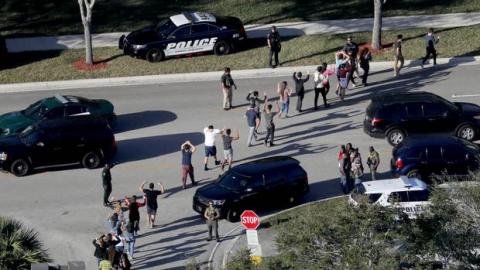This is a reflective piece more than a data-driven piece. I’m venturing, foolishly perhaps, into a topic that hasn’t traditionally been “one of my issues.”
Of course, it’s everybody’s issue to some degree, as we all see the news and experience a bit of the heart-wrench of the individuals, families, and communities who experience the unthinkable tragedy of a shooting, especially mass shootings.
We feel the fear of it hitting our own homes or communities; we feel the pain of how deeply difficult and gut-wrenching it must be for those personally hit; we feel the sense of hopelessness...wishing we could fix the problem, but not knowing how to do it.
Of course, there are many who know exactly what to do, and they’re quick to tell everyone, whether it be a range of gun control solutions, or a range of better parenting, fewer video games, and other social-moral solutions.
But what got me to write about this is an experience I had just yesterday that reminded me of the deep divisions, intense emotions, and “not-going-away” polarization our country feels about this issue.
I took a break from an overwhelmingly stressful and hopefully short-term endeavor I’m tackling, and scanned Facebook. My long-time friend had a post, wherein she re-shared a video her husband had made late last year, as a result of his own grappling with the many mass shootings, particularly the one at the church in Sutherland Springs, Texas last November, not too far from where they live.
In the video, he shows his modest collection of semi-automatic weapons and talks a little about their capability and what prompted him to purchase them when he was younger. He then shared his “shame” about previously believing they were “cool.”
He didn’t want to own them anymore, and his shame was so great that he didn’t want to sell them to anyone else, either. And so, in front of the camera, he “got rid” of his semi-automatic weapons – sawed them up – gone.
I know these friends, and they’re not anti-gun; they’re not ambivalent about the Second Amendment. In fact, they’ve traditionally been quite pro-Second Amendment.
His message was that he was going to put his money where his mouth was, and he doesn’t believe these semi-automatic weapons are needed for personal self-defense, for hunting or for any other non-military, non-law-enforcement purpose, and they do a lot more harm than good. But it was primarily a personal decision for him.
I was impressed. But I’m not writing about the merits of his choice or its potential positive or negative implications if everyone were to make similar life decisions, and I’m certainly not writing to promote particular policy reforms.
What I’m writing about is the reaction. I didn’t think people would get upset about someone making a personal decision to get rid of their own semi-automatic weapons. I was wrong.
I probably have more conservative Facebook friends than liberal Facebook friends (though the balance has been evening out more and more), and I know that many of my friends have very strong uncompromising feelings about the Second Amendment, and though I’ve traditionally understood the basic philosophy behind their arguments and even agree with them on a non-fanatical level, it’s never been “my big issue.”
And so, it’s been hard for me to understand why the left and the right can’t even talk about some common-sense steps we might be able to take to lessen this huge problem in our country.
As I was talking to my own husband about the super-intense polarized feelings I’ve been witnessing from both sides over the last couple of days, he expressed something that made me realize that this issue, like so many others, fits quite relevantly into the independent movement.
He said that for many people, their guns are their way to feel powerful in a powerless society. They have an intense distrust of institutions, a real sense of powerlessness about the economy, about their ability to right wrongs, about so many other threatening aspects of life in our society.
For me, that thought took away some of the despair. It helped me not give-in to the all-too-common powerless shrug of “we are facing a horrible crisis, but we can’t really do anything to try to solve it” – knowing that the independent movement is all about empowering people in positive ways.
It’s about giving people a meaningful voice; it’s about breaking down the barriers between left and right and finding new ways to understand and communicate with one another; it’s about taking away corrupt power from the powerful and giving it to the powerless – the people.
It’s about healing what’s broken.
As I recently saw first-hand, our gun-safety challenges run deep. We won’t solve this problem simply by forcing one side’s will against the other’s. We have to restore trust. We have to help people feel empowered enough to be willing to talk to “the other.”
I hope we can come together and start doing this in bigger, more meaningful ways. More and more people are stepping forward and forming coalitions, supporting one another in the understanding that the answers don’t lie in a particular ideology, but in a mindset that values both liberty and equality, and empowers people.
We can give control of our elections to people over corrupt parties; control of our government to people over corrupt special interests; and control of our society to people over corrupt power brokers and Elites.
Our work of empowering people is of great value and importance. And Time is of the essence.
